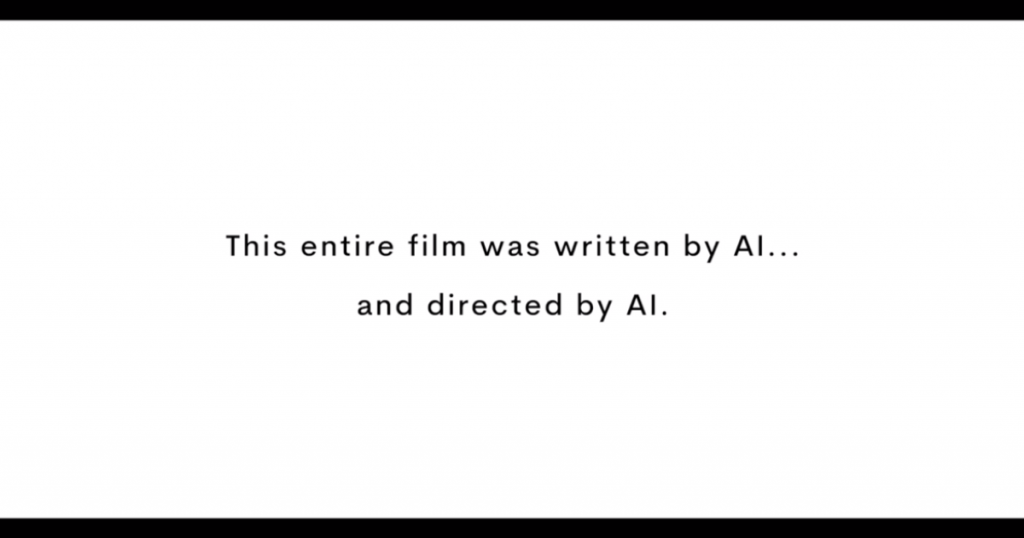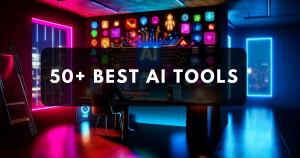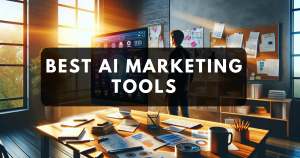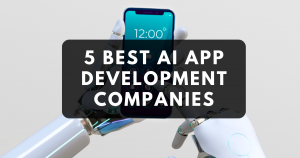Artificial Intelligence language model ChatGPT has been used to create a surprisingly good film. Ironically, about AI taking over the world!
It’s the first of it’s kind, but undoubtedly the last. The technology could revolutionise the way film is created.
The film’s creator, Aaron Kemmer put out a series of Tweets detailing how he and his producer friend came up with the idea.
“I could easily see AI leading to personalized movies,” Kemmer speculated. “where you can see any variation of any film you’ve ever wanted. Watch Tom Cruise play as Iron Man battling Darth Vader … or an infinite number (of) ideas.”
It could hyper-personalise a film to a specific audience, giving all viewers a different experience based upon what the AI thinks the watcher will find most enjoyable.
AI's Impact on The Movie Industry
The film above was written, directed and filmed less than a month after the tool used to create it was publically launched. Love it or hate it, AI is here to stay and the speed at which it can get things done is astounding.
Yes it’s not perfect and needs some finishing touches from humans, but it’s impressive non the less.
How AI Will Impact The Movie Industry
Artificial Intelligence (AI) has the potential to transform the film industry in many ways. From content creation to visual effects and distribution.
Content Creation: AI is assisting filmmakers in script writing, storyboarding, and even animation. For example, AI algorithms can analyze a screenplay and suggest improvements in terms of pacing, character development, and plot structure. This saves time and effort for filmmakers and can also provide fresh perspectives. Additionally, AI can help in the storyboarding process by generating visual representations of scenes based on the script. AI-powered animation tools are also being developed to create realistic and seamless animation.
Visual Effects: AI is revolutionizing the visual effects industry. Tasks such as object removal, green-screen replacement, and 3D modeling can be performed more efficiently and effectively with the help of AI. For instance, AI algorithms can analyze a scene and automatically remove unwanted elements such as wires, rigs, and rigs. They can also replace green-screens in real-time during filming, which saves time and effort in post-production. Additionally, AI can help in creating detailed 3D models, which can be used for a range of applications such as virtual reality and augmented reality.
Facial Recognition & Analysis: AI is also being used in the film industry to analyze audience reactions and improve casting decisions. For example, AI algorithms can analyze the faces of actors during auditions and provide data on their expressions, emotions, and overall performance. This information can help filmmakers in selecting the right actors for their projects and also in improving their overall performance. Additionally, AI can be used to analyze the reactions of audiences during film screenings. This information can be used to optimize the marketing and distribution of films.
Film Recommendation: AI is also helping in personalized film recommendations based on viewers’ preferences. For example, AI algorithms can analyze the viewing habits of a particular audience and provide recommendations for similar films. This not only helps viewers discover new content but also provides valuable insights for the film industry. Film companies can use this data to understand their target audience and produce content that appeals to them.
Content Distribution: AI is also being used to optimize the distribution and advertisement targeting of films. For example, AI algorithms can analyze the performance of films on various platforms and provide recommendations for distribution channels. This can help film companies reach their target audience more effectively. Additionally, AI can assist in the optimization of advertisement targeting by analyzing the viewing habits and demographics of viewers. This helps film companies in creating and targeting advertisements that are relevant to their target audience.
With AI, filmmakers can create high-quality content more efficiently, analyze audience reactions and improve casting decisions, and reach their target audience more effectively. The future of the film industry looks promising, with AI playing a crucial role in its growth and development.





















